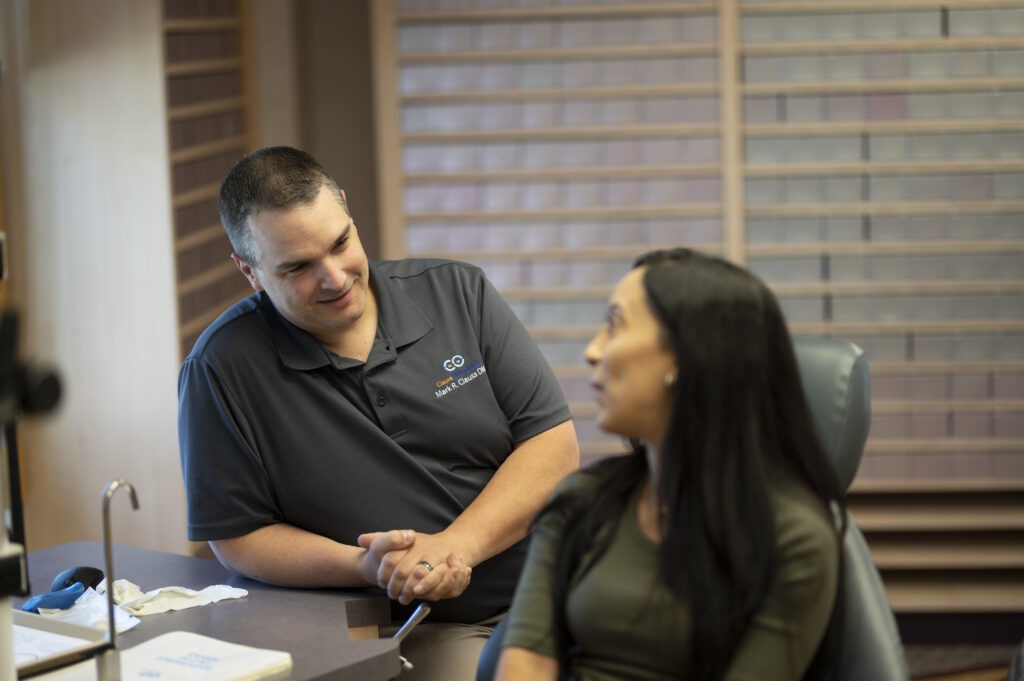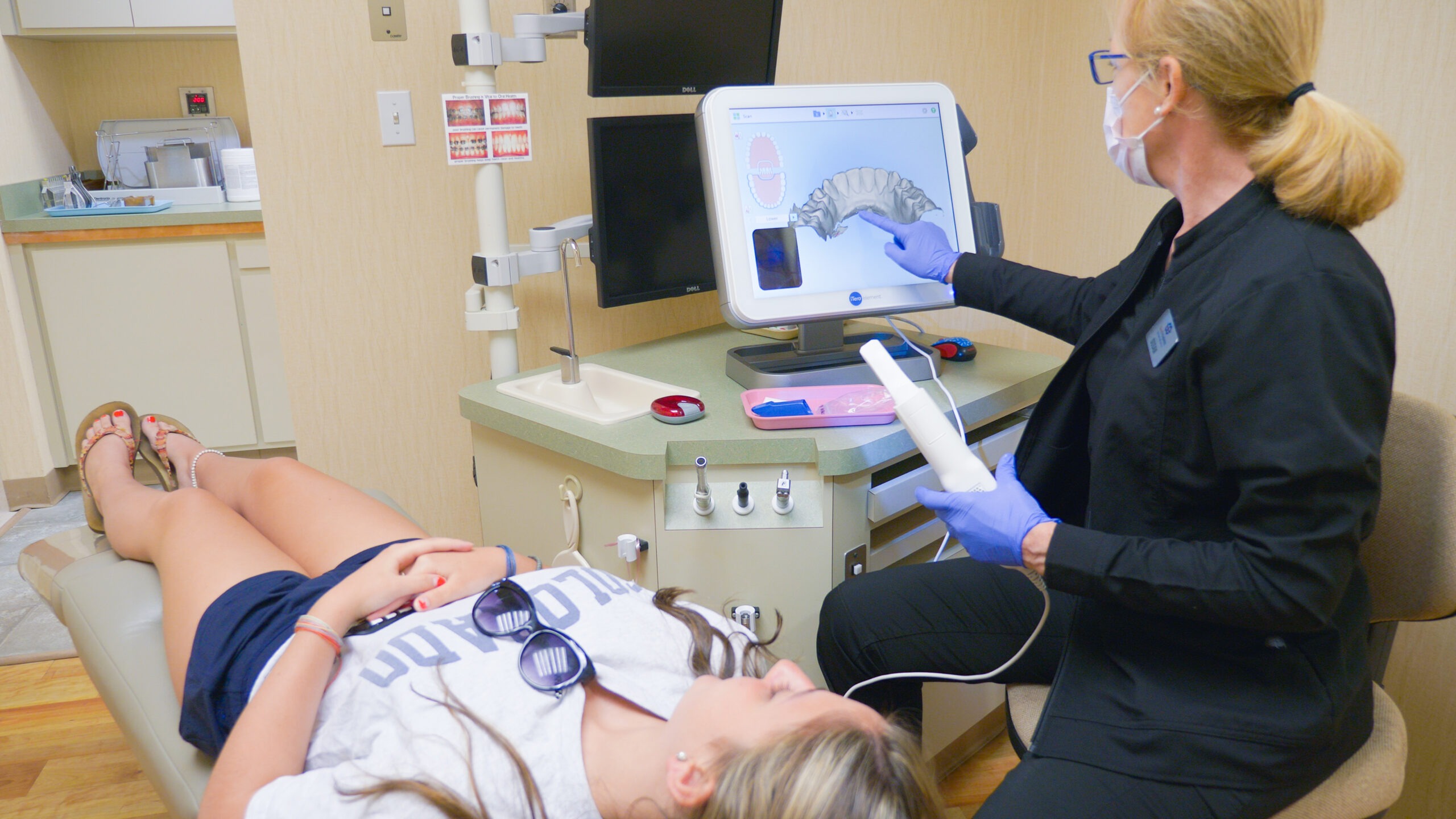At Clauss Orthodontics, we take pride in being able to create and administer treatment plans for all the cases that walk through our doors in Watertown and Middlebury. We can do that because we offer a wide range of treatment options to treat a wider variety of bite issues. One of the tools we utilize when improving our patient’s smiles is the palate expander!
What Is A Palate Expander?
A palate expander does exactly what the name suggests. It expands your upper palate/jaw until you reach your goal width, allowing all your teeth to fit comfortably by slowly pushing the two halves of the upper jaw bone apart daily. As the two halves move away from each other, new bone forms to fill the newly emptied space.
Each expander is custom-made to be comfortable, effective, and efficient for every patient.
Who Needs Palate Expanders?
Palate expanders help patients with overcrowding, crossbite, open bite, and other bite complications, making oral hygiene, eating, and communication difficult. It can even help patients with breathing difficulties due to narrow air passageways from a narrow upper palate.
Though patients of all ages can benefit from a palate expander, they are more common in children due to ongoing bone, making it much easier to make the necessary changes. In contrast, the palate of adults has stopped growing and fused, making other steps necessary to allow an expander to do its job.

Are There Different Types Of Palate Expanders?
Just like there are different types of braces, there are different kinds of palate expanders as well. Some self-adjust, while others require you or a helper to turn a small screw with a unique key daily to activate the expander. The best expander for you depends on your smile goals, the severity of your bite pattern as well as the age of the patient.
Surgically Assisted Rapid Palate Expander (SARPE)
If your case is moderate or severe or you are an adult with fully formed facial bones, you might be a candidate for surgically assisted rapid palate expanders. An oral surgeon places the device into your mid-palatal suture, where the two sides of your palate meet in the middle. You will need to change your diet and lifestyle for a few weeks after surgery. You should follow your surgeon’s guidelines closely for the most comfortable and safest healing process.
Removable Palate Expander
If you need to expand your palate slightly, you might be a candidate for a removable palate expander. This device looks like a retainer but is made of chrome instead! Patients with a removable palate expander must remember to clean them daily with toothpaste and a toothbrush. Unlike removable braces or retainers, you do not need to remove palate expanders when eating (though you should remove them for cleaning after eating).
Rapid Palate Expander
The most commonly used type of expander, this appliance is fixed to the teeth and is not removable by the patient. Rapid palate expanders can expand the palate at a rate of 0.5 millimeters per day.
Implant-Supported Palate Expander
This palate expander puts pressure on four dental implants installed into the maxillary bone instead of your teeth. A periodontist or oral surgeon places the implants.
What Does Life With A Palate Expander Look Like?
Let’s check out some palate expander FAQs!
Do they hurt?
No matter the type of palate expander you have, you may feel slight tenderness or soreness while the palate expander does its job. We are moving your bone, after all! Most of the time, you can treat this with over-the-counter pain medication if needed. If you have an expander that requires you to make manual adjustments every day, you may feel a slight tingling sensation in your nose, but it quickly goes away, and you will quickly get used to it!
Those with surgical appliances will have more side effects as the body gets used to its new device. You may experience swelling, bruising, and numbness. These symptoms should resolve over time, but unfortunately, their permanency is a risk of surgery.
Will your diet or oral hygiene change?
When you have a palate expander, you will need to make some minor diet modifications. You will need to avoid food that can break, stick to, or damage the appliance (such as overly hard, chewy, or sticky foods). Chewing might take some practice with your expander in place, but you’ll become a pro fairly quickly.
You will also need to learn how to clean your appliances adequately, but luckily that only takes a few minutes a day. Follow Dr. Clauss’s instructions to keep you and your expander in good condition!
Will it Affect My Speech?
Some patients find it challenging to communicate when they first get their expander because the tongue has to get used to having it in the way. With some practice, you’ll be able to talk without issue. We recommend reading aloud from a book or magazine daily until you are confident in your abilities.

Let Us Expand Your Smile Possibilities With A Palate Expander!
If palate expanders still sound daunting or intimidating, remember that a palate expander is just a stop toward a healthier, more attractive smile.
At Clauss Orthodontics, we’re committed to guiding you every step of the way, ensuring your experience is as smooth and efficient as possible. So, whether you’re just starting with your palate expander or a seasoned pro, we are here to help whenever you need us. Please feel free to contact us and speak to a knowledgeable team member or make an appointment with Dr. Clauss and begin creating your treatment plan.
